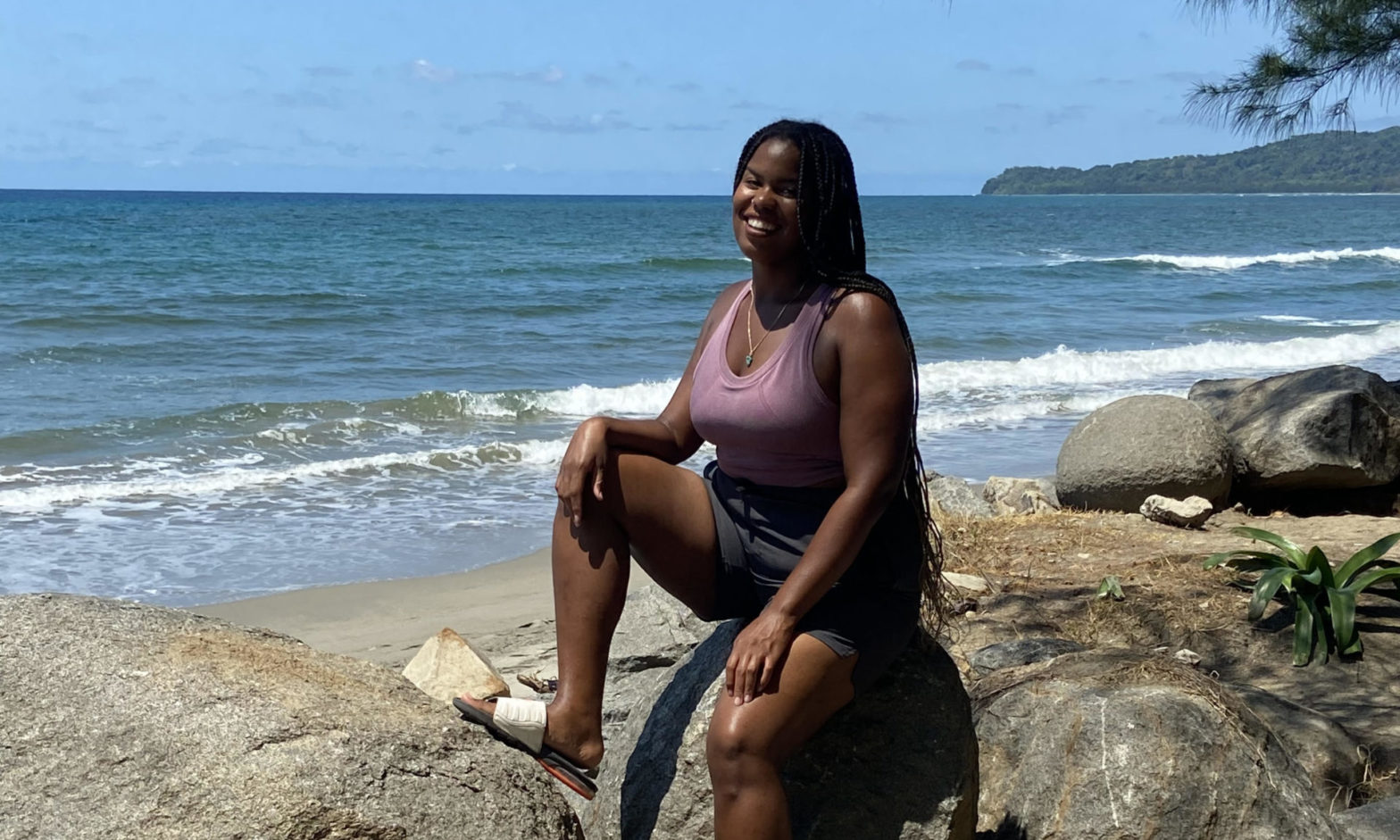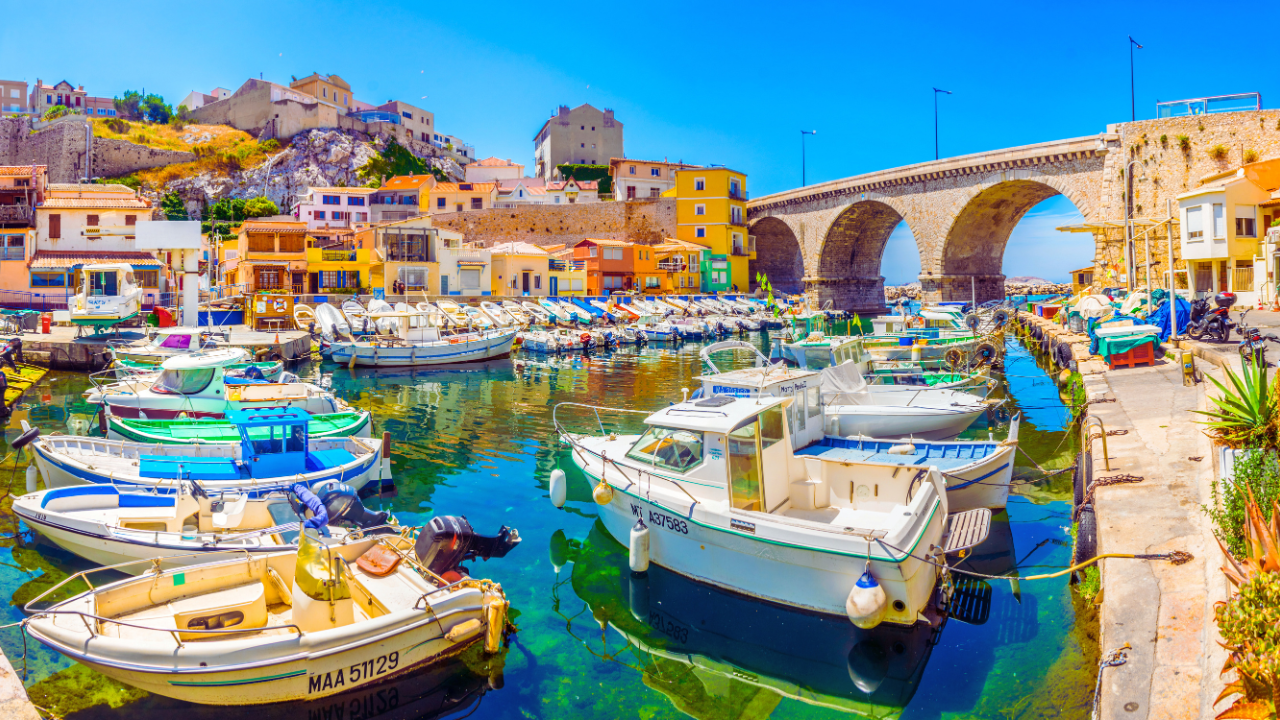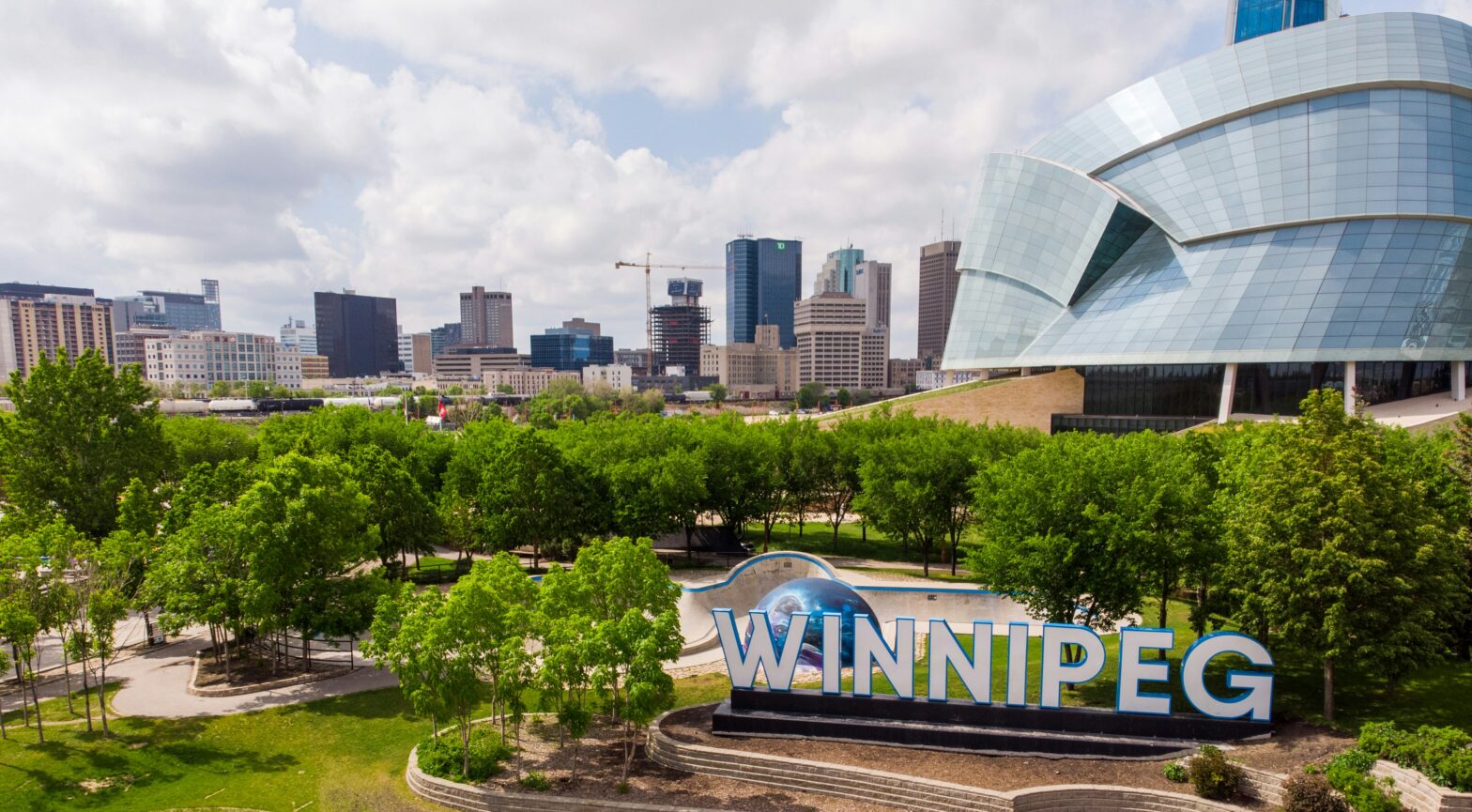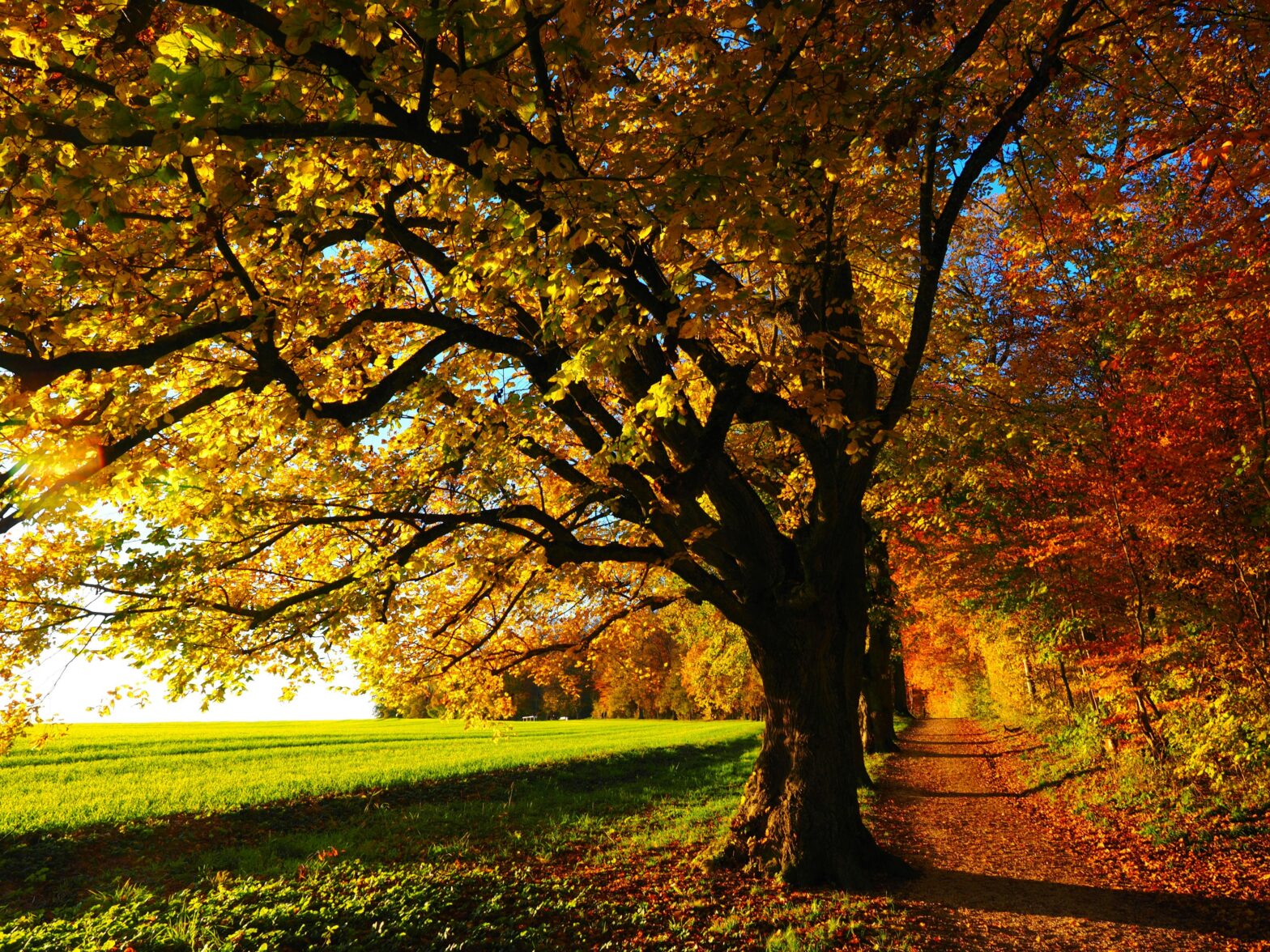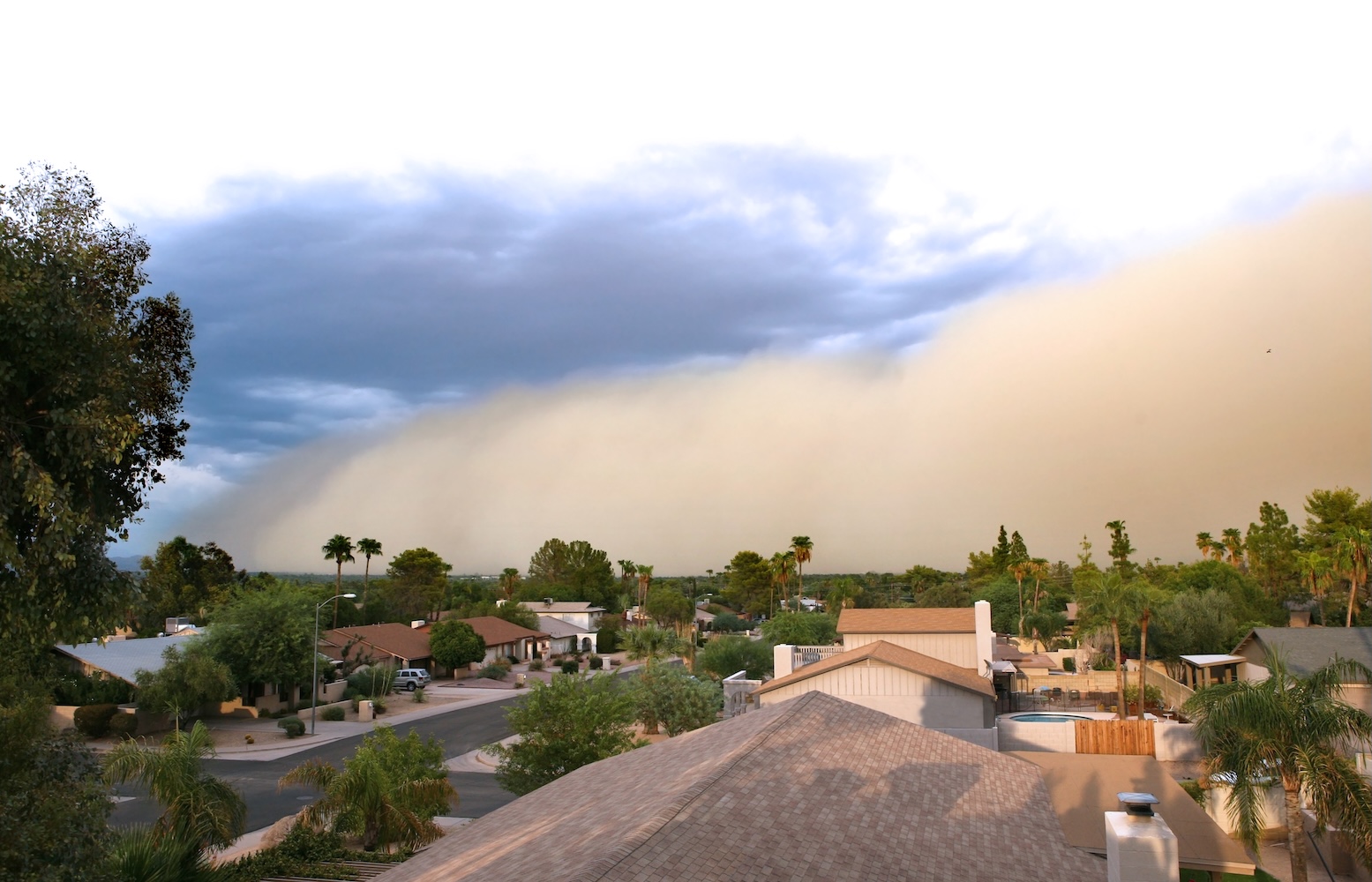Luisa, believing in the power of her wildest dreams, is the Black expat in Honduras investing in herself, her heritage and her vision. A lover of off-grid living, she made the move to Honduras after a trip inspired her in 2018. Although Honduras is not a top expat destination, Luisa had a greater, more holistic lifestyle in mind. Her story is about true freedom and self-sufficiency even while learning the basics of farming while in New York.
Moving from Brooklyn, New York to a Garifuna village in Honduras, Luisa embraced her roots, inner healing and her people by taking the leap. In this Travel Noire interview, find out how Luisa is building the off-grid sanctuary of her dreams for the community.
Tell us about who you are
I was born and raised in Brownsville, Brooklyn and spent my summers without running water or electricity in Sangrelaya — a small, lush indigenous Garifuna village on the Atlantic coast of Honduras.
I was the epitome of the classic bootstrap story: I excelled in my academics, was the first in my family to graduate from a great college and get a masters degree. I went from low income to being a high income earner and had a mostly fulfilling career in education, where I supported beautiful Black and Brown students with succeeding in college and beyond.
After a trip to Honduras in 2018, I knew I needed to return to invest in agricultural and environmental work on the land. By this time, I was deeply invested in the healing of my body through natural foods thanks to many teachers (Dr. Sebi, Dr Llaila Afrika, Botanica, Queen Thandiwe and Queen Afua). I also saw that many of the institutions we put our trust into were poisoning us, killing us and exploiting us. Currently I am ‘enjoying the journey to Eden’, building sustainable, luxurious offgrid sanctuary communities.
Could you tell us about what prompted this journey?
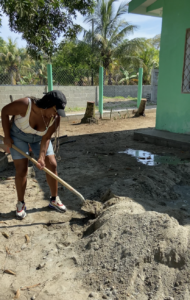
I’ve always been rooted in liberation and freedom, from a really young age. I went to a school that was rooted in Pan-Africanism in Brownsville, Brooklyn. I had really amazing teachers that inspired me to be deeply invested in myself and my culture. I like to start there because this journey of what freedom looks like has evolved for me over time.
After college I went into education and taught for many years because that, for me, was a way to freedom; to create financial opportunities for my people within my communities. After spending a number of years working within the charter school space, and experiencing extreme burnout from working extremely long hours, I knew it was rewarding work but not for my long-term career.
Over time I wanted to really focus on what we need to do collectively to fully live self-sufficiently. Through meditation, exploration and trying different things I learnt that, at a very basic level, I needed food, shelter, land and to be able to grow my own food. I want to be able to also show other people how to do the same whether they have a huge space or a small one. The questions I came back to were: What is liberation and being self sufficient? What does that actually look like? What does that entail for all of us?
Was Honduras your first choice when deciding to start this new chapter?
I went back and forth in terms of the location of where I wanted to be. So initially, I was looking at New York, Dutchess County and then I started looking over in the South. I took a trip in 2018 to Honduras. Initially Honduras wasn’t really on my radar but I felt like I wanted to go back. When I went home and spent time with my grandmother, I realised that so many things had changed with modernity and stuff.
There are a lot of people fleeing the country for economic opportunities. For this reason too there is a huge age difference in the towns. So a lot of the folks are older, you don’t see a lot of people farming anymore. A lot of young folks have moved to the cities or they have decided to come to America. And so that’s what basically led me to come back. I was thinking, “Wait, we’re no longer farming anymore as a collective and as a community?” People are farming less and depending on grocery stores for food and resources.
I wondered how I could do something that’s twofold where folks from the diaspora can come and experience Black/African culture in Honduras, but also the folks that exist here will be served within their communities.
How do you feel your journey with self-sufficiency is going now that you’re here in Honduras?
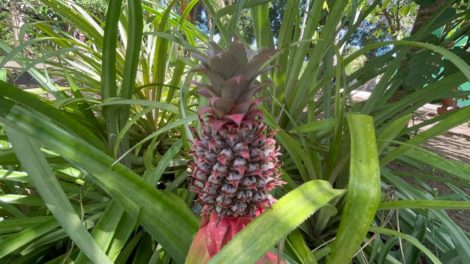
I actually came back in September 2021 so I am at the beginning stages. I purchased a space that was a little under half an acre and there was already a house on the land. When I got to the property there were over 20 trees already on the property, fully fruiting because the person who I got the land from started planting trees over 30 years ago. So today I have these humongous mango trees. I’ve also got a lot of papaya, coconut trees, cacao – all of it.
I’m really interested in mini-farming and I actually started off growing food on my rooftop in Brooklyn. I already knew that I didn’t need tonnes of acres. A book that I’m really focusing on is this book by Brett L. Markham, called Mini Farming: Self-Sufficiency on 1/4 Acre. Honestly it is all trial and error, I wasn’t fully versed when I arrived but I am open to learning. Right now I have a well on the property and I am learning the dos and dont’s of that.
It’s certainly a learning process. What was it like growing up in Brooklyn in a Garifuna household?
When I was in school, I had experienced moments where I wasn’t super proud of my culture and who I was. Especially being Black, speaking Spanish, and then also coming from a small ethnic group that many didn’t really know much about. I definitely went through moments of shame and I think this is similar for other immigrant families. I was ashamed that my mother didn’t speak English and people would always ask me ‘where’s your family from?’ I felt left out that my family was from Honduras and not down South. Most people didn’t even know where Honduras was.
Growing up I knew my history, that my people had lived 200+ years outside of the confines of colonialism and that we were never enslaved. I knew all of this but as a kid I felt left out that I wasn’t able to relate to anyone.
Now that you’re living in Honduras, how has your relationship with your culture changed?
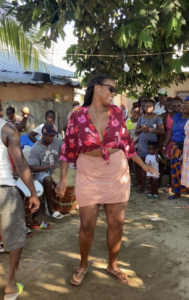
Now that I’m here I have a very deep sense of pride being here with my people because I know what it took for us to be here, thriving. I say this because the community is still under assault. The government has tried to confiscate land and build properties and resorts in Garifuna territory. In fact, a Garifuna leader and four other black men were abducted from their homes while fighting for land rights. As I’ve come back here I know that I am a part of the movement to focus on ensuring our people still have access to our land.
What is your favorite thing about your life at the moment?
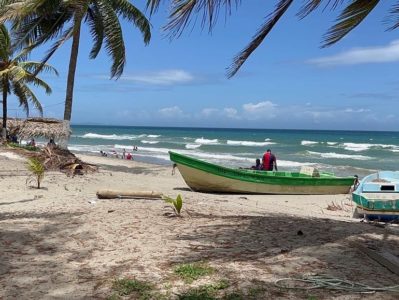
I’m always in awe of the manifestation. I remember writing about this five years ago and thinking of the different fruit trees I wanted to have in the space and how I wanted the space to look. It is so surreal to be here. I love interacting with the community.
Most people in Honduras are leaving and heading to the States so it has been interesting seeing the reaction when they see that I am trying to stay here and build projects and spaces dedicated to maintaining the land. It has been nice to share and to see my people’s reaction.
One last thing, for the most part I have been taken care of beautifully by the Black men within my community. They don’t know me from anywhere or ask anything of me, they are simply checking in on me, helping me build the well and offering tonnes of respect. Where I am at in my own learning, I just needed to see that I can trust the people around me. Also that I could trust the Black men around me because the Black men that are here within my my community are very beautiful people.
Is there anything to look forward to with your work?
In the fall I will begin to invite and host people. I’m creating a space for other healers to use, for retreats and wellness experiences. I think that a lot of times people are doing wellness retreats and experiences, but they’re doing it in places that are not necessarily owned by indigenous people. I believe that anytime you spend money, you’re not only spending money on a product or service, you’re also spending money on an entity and its value. In this sense, I want folks that feel aligned to the work that I’m doing.
I’m also in the process of creating some agricultural projects down here so I’m super interested in connecting with folks that know about mini farming, but also know how to farm to create economic opportunity and so forth.
I’m also interested in connecting with folks that know about trash disposal, and are interested in doing work that is rooted in taking care of the environment. One thing that I see here in Honduras is that we don’t have the infrastructure to throw away trash. What ends up happening is that you see a lot of Coca Cola bottles and things like that littered on the floor. What we need here is access to trash cans but also a way to safely dispose of plastic.
Where can we find you online?
You can find me on Instagram for updates on my projects.
